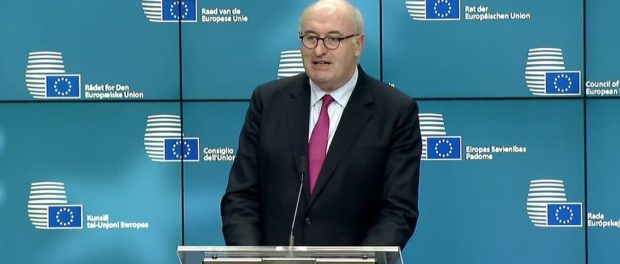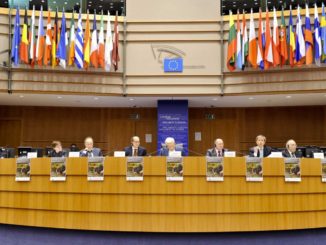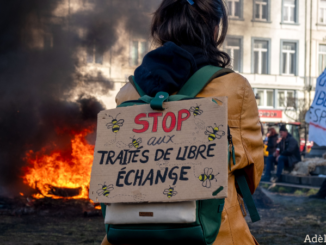With the date for the CAP communication fast approaching, protagonists antagonise each other while the Commission indicates that it may – in actual fact – do little of substance.

With the Communication on the Modernisation and Simplification of the CAP due to be unveiled towards the end of November, Commissioner Phil Hogan looks set to focus on what has been described as “building resilience and risk management tools”, and an “evolution not revolution” approach.
This places him close to the European People’s Party position on CAP – his base political party in the Irish Republic, Fine Gael, are members of the EPP.
This despite the Commissioner’s announcement of a more environmentally ambitious CAP, and indeed the somewhat unexpected recent banning of pesticides from Ecological Focus Areas.
Risk management in particular is seen by many green and small farmer organisations as a transfer of crucial, limited and potentially declining resources away from rural development and environmental measures, to the insurance and finance industries.
There have been recent calls and proposals for a significant CAP reform, from the European Environmental Bureau, from Olivier de Schutter of IPES-Food others. However there are indications that change may be limited.
Because of co-decision making and upcoming elections, the most that can be expected, Alan Matthews suggests, is a CAP-lite revision: “The bottom line – getting substantial CAP2020 legislation through in this Parliamentary term is a non-starter. The very best that the Commission might hope for is to get a CAP-lite revision through in 12 months provided it was focused on just a very small number – one or two – of key issues. But under co-decision the Commission can no longer control the process once its proposal is made. As we saw with the Omnibus Regulation, both COMAGRI and the Council will want to adorn the Commission proposal with their own amendments. This might diminish the chances of success of even a CAP-lite package passing in the current Parliamentary period.”
What’s more there has been a recent push against by the European Parliament’s agriculture committee (COMAGRI) to actually weaken CAP greening. Under current rules 30% of CAP subsidies are paid out because of compulsory Pillar 1 greening measures.
“We have to leave the approach of penalties, introducing the approach of incentive,” said agriculture committee MEP Paolo De Castro. Fellow COMAGRI member and European Parliament Vice President Mairead McGuinness, also complained that greening “blunt instrument”. In response, Trees Robijns, until recently of the environmental NGO Birdlife Europe described removing the penalty system as “a joke”. Politico reported. (05/10/2017)
COMAGRI is on a collision course with environmental campaigners, inside and outside the parliament, who already see greening as a weak failure.
EEB Policy Manager for Agriculture & Bioenergy Faustine Bas Defossez complained that greening is “green only in name”. She told Agrafacts (20/09/2017): “Using a failed greening policy to justify continuing spending so much of the EU budget on the broken CAP would be scandalous and would only further de-legitimise the entire policy & its budget”.
Perhaps there is some hope in the fact that neither farmers nor environmentalists think greening is working for the environment.
For more




